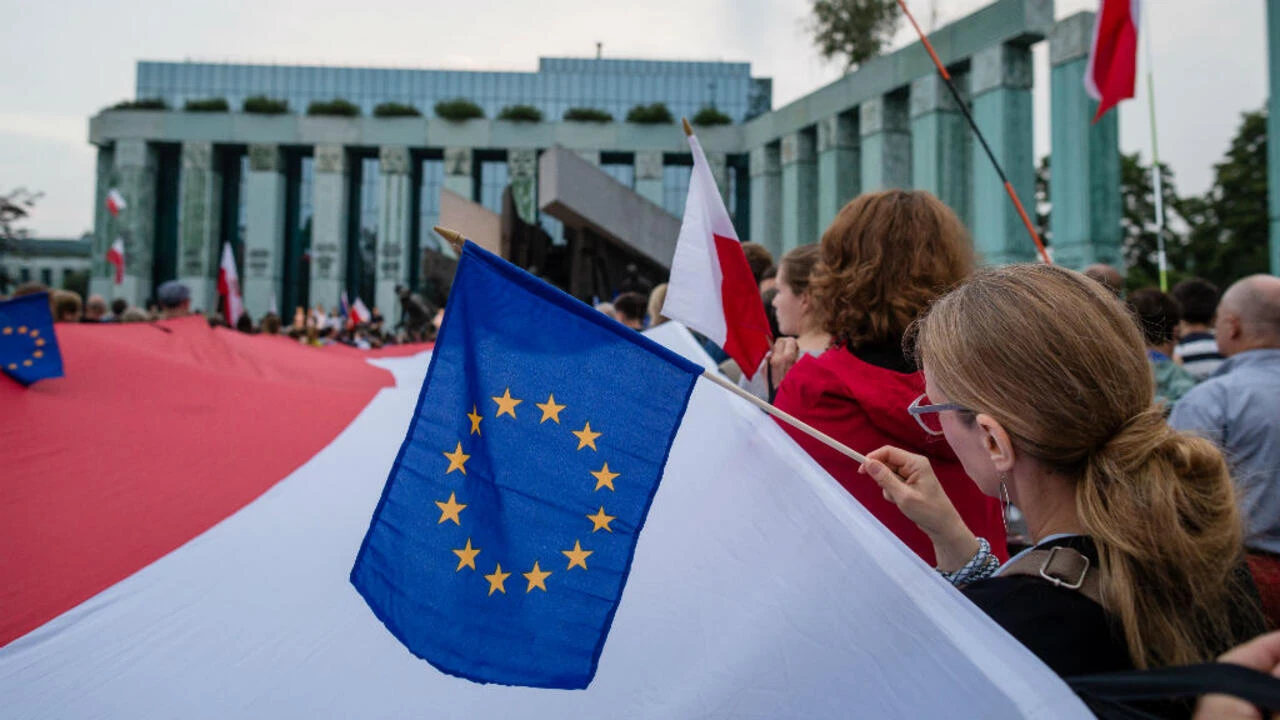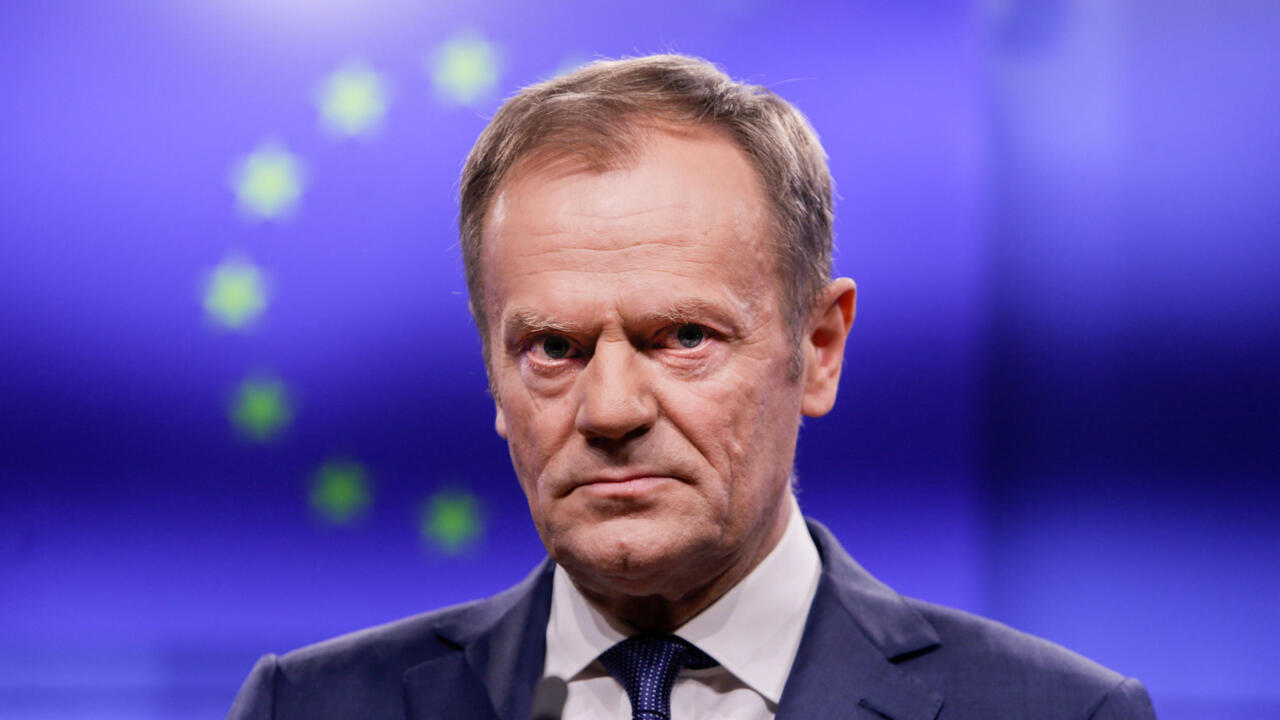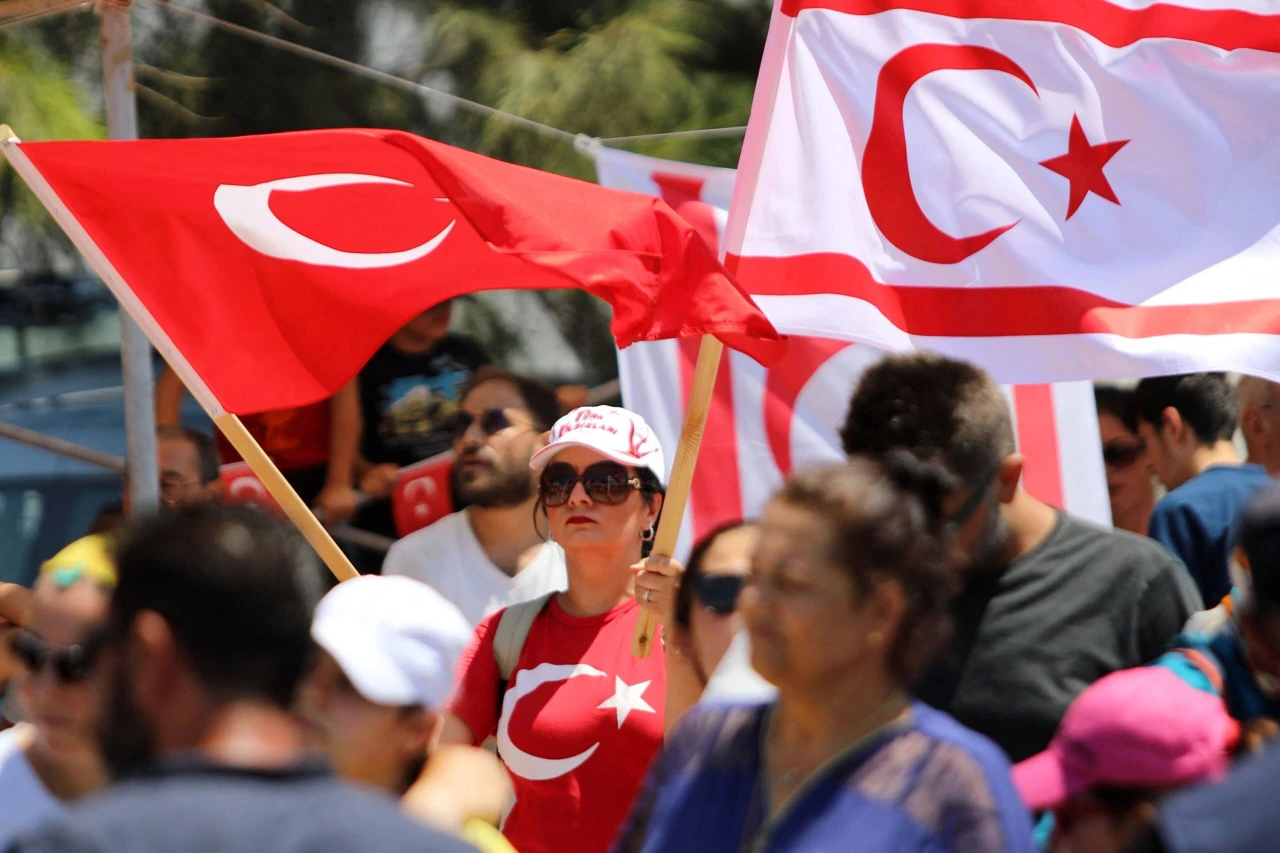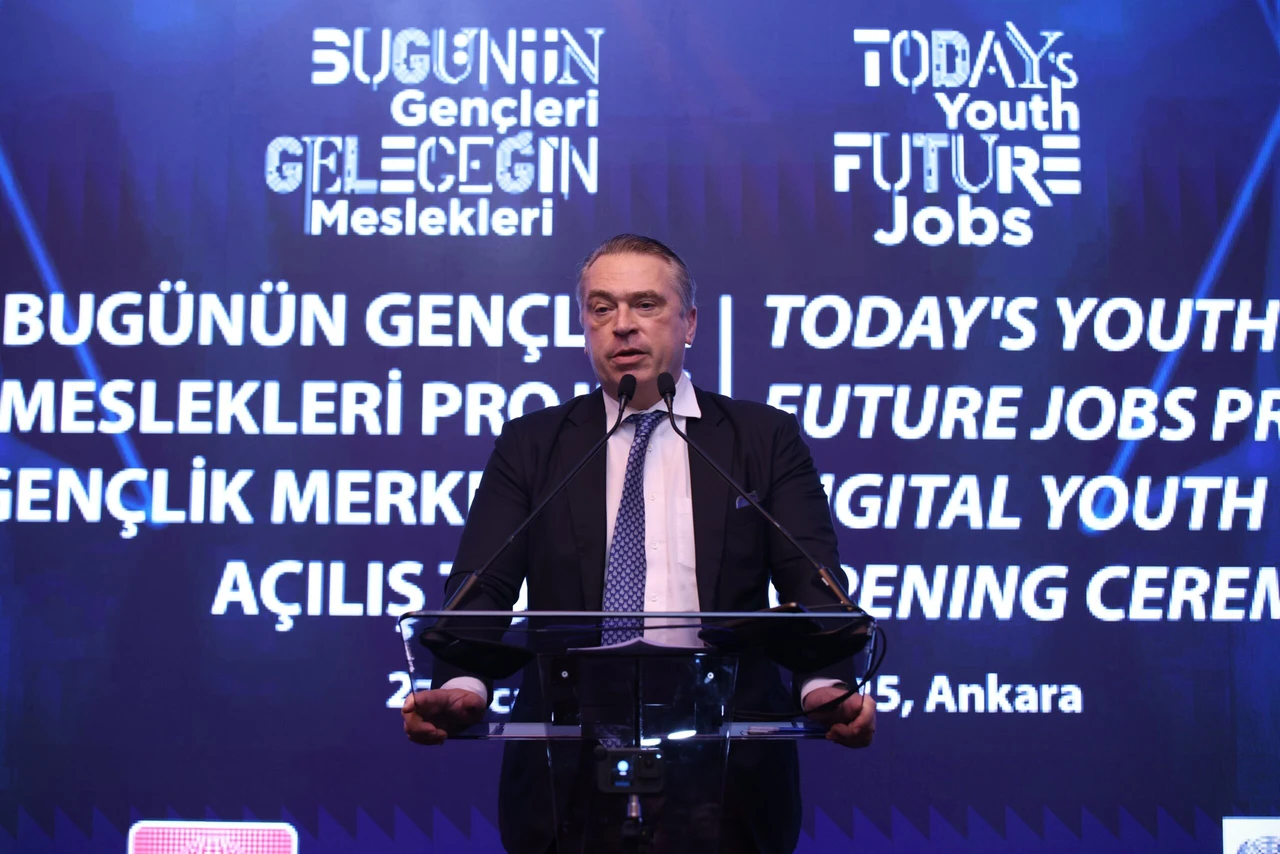Poland takes over EU presidency, focusing on security, enlargement, relations with Türkiye
 Protesters hold a Polish flag as they take part in a demonstration in front of the Polish Supreme Court on July 21, 2017 (AFP Photo)
Protesters hold a Polish flag as they take part in a demonstration in front of the Polish Supreme Court on July 21, 2017 (AFP Photo)
Poland officially took over the rotating presidency of the European Union (EU) Council on Jan. 1, 2025, succeeding Hungary.
This six-month term comes during a period of significant geopolitical tensions, marked by the ongoing Russia-Ukraine war and economic and energy challenges across Europe.
Poland’s presidency priorities
Security in focus
Under the theme “Security, Europe!” Poland’s presidency will emphasize a broad approach to security, encompassing military defense, energy independence, food and economic resilience, health preparedness, cybersecurity and civilian protection.

Key objectives
- Strengthening EU defense: Poland aims to advance projects like the Eastern Shield to bolster the EU’s collective defense capabilities.
- Accelerating enlargement: Efforts will focus on integrating countries such as Ukraine, Moldova, and Georgia into the EU, while also supporting Western Balkan nations.
- Tougher sanctions on Russia: Poland plans to push for stricter measures against Moscow and reduce EU reliance on Russian energy supplies.
- Migration reform: The presidency will prioritize border security, reducing irregular migration, and improving deportation procedures.
- Enhancing EU-Türkiye relations: Recognizing Türkiye’s strategic importance in security and energy, Poland seeks to foster closer ties and promote cooperation with Ankara according to experts like Emrah Dokuzlu.
EU enlargement, regional security
Poland views EU enlargement as crucial for ensuring regional stability. It intends to initiate Ukraine’s accession talks while supporting Moldova and Georgia in their EU aspirations.
However, internal divisions within the EU, particularly from Hungary and Slovakia, could complicate these efforts. Warsaw remains committed to balancing enlargement with the bloc’s collective security.
Strengthening transatlantic relations
Poland’s presidency aligns with significant developments in U.S. politics, including the upcoming American presidential transition. While concerns exist over a potential reduction in U.S. support for Ukraine if Donald Trump returns to office, Poland’s strong ties with the United States remain a cornerstone of its foreign policy.
As a NATO ally, Poland is increasing its defense spending, with plans to allocate 4.7% of its GDP to military investments by 2025. Substantial acquisitions of American military equipment highlight Warsaw’s commitment to transatlantic security cooperation.
Domestic implications
The EU presidency holds domestic significance for Poland, particularly with its presidential elections scheduled for May 2025.
Public sentiment on Ukraine’s EU accession is mixed, with concerns about economic competition in agriculture and lingering historical tensions. Despite this, Poland’s geopolitical priorities and fears of Russian expansion ensure ongoing support for Ukraine.
Poland’s EU presidency offers a critical opportunity to influence the bloc’s direction during a turbulent period.
By prioritizing security, enlargement, and transatlantic ties, Warsaw seeks to strengthen the EU’s unity and global standing. However, navigating member state divisions and addressing domestic challenges will require careful diplomacy.



